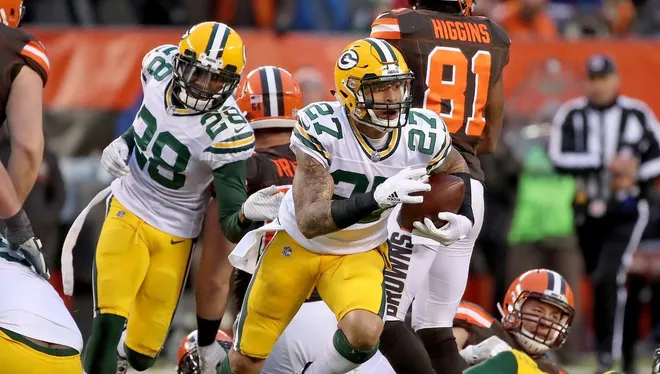Sean Clifford Well, that was quite the spectacle, wasn’t it? The Green Bay Packers’ offense was held scoreless in their preseason game against the Denver Broncos. That’s right—ZERO points! Of course, there were some mitigating factors. The Packers’ game was played entirely by backups and lower-tier players, while the Broncos fielded their starters for significant snaps and generally had a depth chart advantage. Despite this, the Packers’ offense was dismal, with particularly problematic quarterback play.
This issue isn’t new. The backup quarterback situation has been a concern since Aaron Rodgers left for New York and Jordan Love took over as the starter. Last year, the Packers surprised many by drafting Sean Clifford in the fifth round. Clifford was ranked as the 20th best quarterback by Dane Brugler and was projected to be a priority free agent, not even the top-ranked one.
Fortunately, Clifford didn’t have to play last season, and the Packers added Michael Pratt this spring, who was expected to be picked earlier but was selected in the seventh round. While Pratt has more arm talent than Clifford, his performance hasn’t impressed so far. The Packers seem to favor Clifford with the second-stringers, and Pratt’s future seems uncertain, especially given that no other team picked him before the seventh round.

Quarterbacks are always in high demand around the league. The Packers aren’t looking for a superstar—just someone who can keep the team afloat if Love misses a few games. The goal for a backup quarterback is to avoid completely derailing the offense. Last season, against the Los Angeles Rams, the Packers faced Brett Rypien and managed to shut down the Rams’ offense, highlighting how crucial it is to have a competent backup.
So, who are some potential solutions from around the league? Ryan Tannehill is a notable free agent but is looking for a chance to compete for a starting job and a substantial salary, which Green Bay might not be willing to offer. Here are some alternatives:
Taylor Heinicke (Atlanta Falcons): Heinicke is currently the third quarterback in Atlanta, and while not spectacular, he has NFL experience. His salary is reasonable at $1.21 million. Green Bay might consider trading a late pick to secure him.
Bailey Zappe (New England Patriots): Zappe, who once nearly led the Patriots to victory over the Packers, has struggled overall. He’s inexpensive at $985,000 but has not impressed in recent performances.
Tyler Huntley (Cleveland Browns): Huntley signed with the Browns but faces competition from Jameis Winston and Dorian Thompson-Robinson. While Huntley has shown some promise with his legs, his passing numbers haven’t been stellar. He’s on a one-year minimum deal of $1.125 million.
Dorian Thompson-Robinson (Cleveland Browns): DTR has athleticism but poor passing stats. Cleveland might look to trade him, but he has shown limited NFL potential.
Case Keenum (Houston Texans): Keenum, a veteran, has had a long career as a backup but hasn’t played much recently. He’s the most expensive option on this list at $2.75 million, plus bonuses.
Davis Mills (Houston Texans): Mills has had some intrigue in the past but hasn’t shown much progress. He’s younger and under contract for $1.134 million this year, but his performance has been inconsistent.
Desmond Ridder (Arizona Cardinals): Ridder is competing for the backup spot with Clayton Tune. His stats in Atlanta were underwhelming, but he might be a viable option at $985,000 this year.
While none of these options are perfect, Taylor Heinicke stands out as the best candidate, with a clear gap between him and the next-best option, Tyler Huntley. Beyond that, the drop-off is significant, making Heinicke the most viable choice for the Packers’ backup quarterback role.

